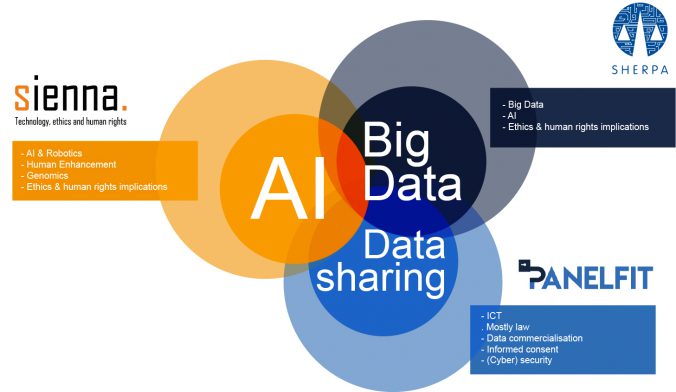Inequality is not just a bad feeling that some may have, but a bad reality that we share. Especially in countries where gender equality work is not well established, it is important that inequality is not handled as a contested issue, but as a fact about which more knowledge should be sought. Who has the power over the criteria for what a successful researcher is and who has a better chance of succeeding? Which structures undermine or support gender equality? What does childcare look like? Are the research teams homogeneous and how does that affect the work? Where do women end up in the author order in scientific publications and where do they end up in the competition for research funds? Are there mechanisms and values in science that systematically make inequality invisible and prevent equality?
There is a will in the EU to improve gender equality in research organizations, especially in some of the Member States where gender equality work is particularly neglected. How can the necessary changes be brought about? In Sweden, all state universities are commissioned to collect data on (in)equality. Under the slogan “No data: No policies!” an EU project presents its approach to gender equality plans. The project, MINDtheGEPs, develops and implements gender equality plans in a collaboration between 7 European research organizations in 5 countries: Spain, Poland, Ireland, Italy and Serbia. The focus is on changing the organizations structurally and culturally and increasing women’s participation in research and innovation. The project is coordinated from the Center for Women’s and Gender Studies at the University of Turin. The work is supported by a further 4 organizations: the publishing house Elsevier in the Netherlands, the research organization Knowledge & Innovation in Italy, the National Research Council of Italy, and by the Centre for Research & Bioethics (CRB) at Uppsala University, which leads the communication work.
In the participating countries, there is a lack of sufficient data on factors behind equality and inequality, which means that those who suffer from inequality also suffer from not being seen. Therefore, it is important to carry out studies that map the problems. If the studies are also carried out in one’s own organization and one contributes to producing the data, this can further contribute to making the problems visible and motivating change. Therefore, the organizations in MINDtheGEPs collect data together to develop, adapt and support interventions at the local level. Behind the approach is a reasonable idea: if you cannot provide evidence of inequality, you will not get support to remedy the problems either. The project thus collects data on existing legislation and policy in the 5 countries, as well as data on the proportion of women in governing bodies at different levels, on the proportion of women who apply for and receive research support in competition, as well as data on the existence of gender equality measures. Surveys and interview studies are also carried out with researchers, administrative staff, rectors and vice rectors, department directors and other relevant actors. This large data collection and analysis is the basis for the 7 gender equality plans that are developed and implemented in MINDtheGEPs. Here you will find a presentation of the data collection.
If you want a summary of the work with evidence-based equality plans, you can read this policy brief from the project: No data: No policies! The MINDtheGEP’s approach to evidence-based policies for Gender Equality Plans. The document gives a brief account of structural and cultural measures that are recommended on the basis of the studies in various areas. It is about balance in recruitment and career progression and about balance between work and private life. It is about making gender equality issues visible in research and teaching, for example through courses that highlight gender as an important dimension in these activities. Finally, it is about changing the work in decision making bodies so that more women can reach higher positions within research organizations in the countries in the project collaboration.
The approach in MINDtheGEPs can probably inspire other organizations in addition to those included in the project, even organizations that do not work with research. This is also a thought behind the project. The hope is that the work of developing and implementing gender equality plans in a number of research organizations will influence the rest of society. Without data, gender inequality risks being made invisible as a bad feeling.

Written by…
Pär Segerdahl, Associate Professor at the Centre for Research Ethics & Bioethics and editor of the Ethics Blog.
Solera, Cristina, Balzano, Angela, Turco, Federica, Pisacane, Lucio, & Fernow, Josepine. (2023). No data: No policies! The MINDtheGEPs approach to evidence-based policies for Gender Equality Plans. Zenodo. https://doi.org/10.5281/zenodo.7785413
We want solid foundations



 Do you use Google Maps to navigate in a new city? Ask Siri, Alexa or OK Google to play your favourite song? To help you find something on Amazon? To read a text message from a friend while you are driving your car? Perhaps your car is fitted with a semi-autonomous adaptive cruise control system… If any software or machine is going to perform in any autonomous way, it needs to collect data. About you, where you are going, what songs you like, your shopping habits, who your friends are and what you talk about. This begs the question: are we willing to give up part of our privacy and personal liberty to enjoy the benefits technology offers.
Do you use Google Maps to navigate in a new city? Ask Siri, Alexa or OK Google to play your favourite song? To help you find something on Amazon? To read a text message from a friend while you are driving your car? Perhaps your car is fitted with a semi-autonomous adaptive cruise control system… If any software or machine is going to perform in any autonomous way, it needs to collect data. About you, where you are going, what songs you like, your shopping habits, who your friends are and what you talk about. This begs the question: are we willing to give up part of our privacy and personal liberty to enjoy the benefits technology offers.


